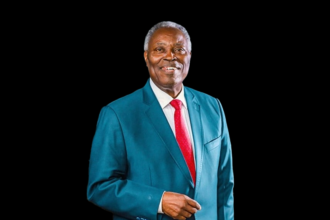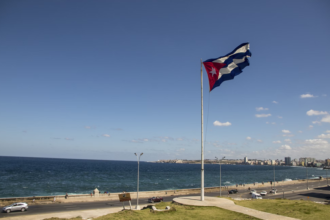Former Uruguayan president José Mujica is still a legendary person in the world of politics. José Mujica is well-known for his progressive changes and modest leadership style; his legacy cuts beyond boundaries. Leaders and people all around still find inspiration in his attitude to social programs, personal lifestyle, and government. Examining José Mujica’s legacy, policies he supported, and how his ideals influenced Uruguay and the world, this paper explores his presidency.
José Mujica left behind not only political deeds but also a lifestyle that represented his strong dedication to social fairness. Born in 1935 in Montevideo, Uruguay, Mujica grew to be a powerful player in the political scene of her birthplace. Originally a founding member of the leftist guerrilla group Tupamaros National Liberation Movement (MLN-T), he battled the autocratic regime of the 1960s. Inspired by the Cuban revolution, the group aimed to question Uruguay’s political system by means of direct action comprising kidnappings and robberies.
During Uruguay’s military dictatorship, Mujica’s loyalty to the Tupamaros resulted in his arrest and more than 14 years of incarceration. He suffered and spent much of his time in solitary confinement. José Mujica’s legacy as a tenacious and unflinching person started to show even under these difficult circumstances. After his release in 1985 and Uruguay returned to democracy, Mujica’s political career took off, and he started his path toward being a symbol of progressive leadership.
Following his release, Mujica entered politics first as a congressman, then as a minister, then as Uruguay’s president from 2010 to 2015. Personal ambition did not define José Mujica’s ascent to political prominence; rather, his goal to better the lot of common Uruguayans drove him forward and would become important in his legacy. Read another article on the Vietnam economy growth
What legacy did José Mujica leave behind as President?
José Mujica’s legacy grew to be associated with social advancement throughout his administration. Bold changes and a dedication to social fairness distinguished his leadership. Legalizing recreational marijuana in 2013 made Uruguay the first nation in the world to control the marijuana market, among other, one of its most important achievements. Not just innovative, but also targeted at addressing the violence and instability brought forth by the illegal drug trade, this policy
Mujica’s marijuana laws stood as a protest against the established quo. He maintained that control of marijuana would guarantee that people could consume the drug safely and help to lower the bloodshed generated by drug gangs. Though it attracted international attention, this action was simply one instance of José Mujica’s legacy as a progressive leader ready to question accepted wisdom.
José Mujica left behind another significant legacy in his leadership in defending human rights. Over his tenure in power, he supervised the legalization of abortion and same-sex marriage—two important events for social advancement in Latin America. These laws spoke to his dedication to justice and equality for all person, regardless of gender or sexual orientation.
Mujica also concentrated on lowering inequality and poverty. His government raised public expenditure in social welfare initiatives, therefore improving education, healthcare, and poverty rates. For many Uruguayans, these changes greatly improved their quality of living and helped to lower their poverty rate. Uruguay saw low unemployment and a drop in inequality, as well as economic development under his direction. Critics of José Mujica’s legacy, however, pointed to his government’s growing financial shortfall and charged him with fiscally reckless behavior.
Notwithstanding these complaints, José Mujica’s legacy is usually seen as one of success in tackling social and economic issues facing his nation. His presidency was distinguished by his ability to strike a balance between social reforms and economic development, therefore proving that progressive ideas may coexist with a robust economy.
José Mujica Rejects the Title of "World's Poorest President?"
Given José Mujica’s modest way of life, the label “the poorest president” was sometimes used to sum up his legacy. Driven by an inexpensive 1987 Volkswagen Beetle, he resided in a little farmhouse on the outskirts of Montevideo with his wife, Lucía Topolansky. Unlike other world leaders, Mujica chose a modest life over the presidential residence and its accompanying pleasures.
José Mujica, however, disagreed with this classification of poverty, declaring, “They say I’m the poorest president. Not at all. Those who seek more are poor since they are always running an infinite race. This remark sums up José Mujica’s legacy. His rejection of financial riches was not motivated by a need for approval but rather by a criticism of the materialism he observed all around modern culture.
Mujica’s political worldview revolved mostly around his humility. True riches, he thought, came from the bonds we create and the principles we live by, not from worldly goods. His way of life was the mirror image of these ideas. Though titled “poorest president,” José Mujica’s legacy was one of spiritual richness with an eye on human relationships, equality, and social justice.
Though José Mujica’s austerity defined his legacy, the major social improvements his government passed also shaped it. Under his direction, Uruguay made significant public resource-funded gains in welfare, education, and healthcare. Although his programs raised public expenditure, which raised questions about the financial situation of the nation, these expenditures were meant to help create a fairer society.
How did the world respond to José Mujica's legacy?
José Mujica left behind a legacy that affected common people as well as political leaders worldwide. In a society too frequently materialistic, his special mix of political change and personal humility was a breath of fresh air. Although many political leaders concentrate on authority and reputation, José Mujica led with people foremost in mind.
Mujica became well-known all around for his progressive views on human rights and the legalization of marijuana. Many people who were disappointed with the excesses of modern politics connected with his denial of luxury and emphasis on human dignity. José Mujica’s impact kept motivating people all around even after he left office in 2015.
Among other political leaders, his leadership made him a revered person since many of them appreciated his dedication to progressive values and social justice. José Mujica’s legacy disproved the conventional wisdom about political leadership by demonstrating how one may lead with compassion, honesty, and humility.
What contribution did José Mujica make to the political scene?
José Mujica left behind a political legacy marked by pragmatism and intense dedication to progressive ideas. Leading proponent of Latin American socialist politics, he sided with other well-known leaders as Hugo Chávez from Venezuela and Luiz Inacio Lula da Silva from Brazil. Unlike some of his colleagues, Mujica, however, concentrated not just on ideological unity but also on pragmatic ideas meant to make daily life better for common people.
His position on subjects including healthcare, education, and labor rights reinforces his record as a leader who gives human dignity top priority over political advantage. His leadership demonstrated how committed to the general good, instead of party or personal objectives, results in actual political development.
In summary: What Legacy of José Mujica Might Teach Us?
The legacy of José Mujica offers citizens as well as politicians insightful lessons. His dedication to social justice, humility, and the welfare of his people presents a fresh perspective on leadership in the modern society. José Mujica demonstrated by emphasizing service above self-interest that good leadership does not call for luxury, wealth, or power.
José Mujica’s legacy teaches us as we look ahead that real leadership comes from the heart and should always give the welfare of the people top priority over personal advantage. Those who aspire to a more fair, equal, and caring society are still motivated by his life and efforts. Following some of José Mujica’s legacy values will help us all contribute to create a fair and sustainable future for next generations.








